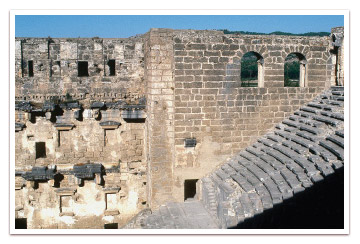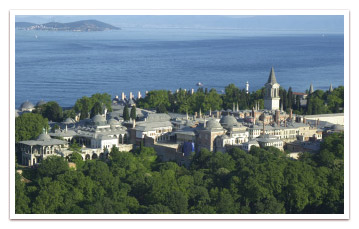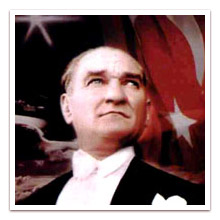

The Turkish story is one of remarkable accomplishment – the construction of an enduring, secular democracy on the ashes of an empire. It is also an exciting tale that begins with the extraordinary heroism of both a nation and its visionary leader, Mustafa Kemal Ataturk. The founding of the Republic is a rare instance of conviction and idealism triumphing over fierce odds.
The history of the last 87 years is a story of a purpose. That purpose is to create peace at home and peace in the world. Turks enjoy a free and democratic society and the nation partakes responsibility in the architecture of the modern world. Situated on the confluence of several strategic basins, Turkey continues to hold enormous importance for the western alliance. In addition to its strategic importance, the country now finds itself at the center of over-lapping geo-economic zones, some of which did not even exists a decade ago. Prominent among these are the oil and gas-rich states of Central Asia to which Turkey has not just geographical but also cultural affinity.

Turkey is also the industrial and trading hub of the states around the Black Sea and Middle East. Underlining both its western vocation and economic strength Turkey is negotiating accession to the European Union as a full member. Turkish products compete at home and abroad on par with those of the most developed economies. Turkey is poised to play a constructive role in the political and economic reconstruction of the Balkans, the Caucasus and the Middle East. It is also a force for international cooperation in its broad neighbourhood. Turkish leadership in these areas is all the more valuable for its example as a secular democracy where the great majority of its population is Muslim.
The Birth of a Nation

Like the Russian and Austro-Hungarian Empires, the Ottoman Empire failed to survive the turmoil of the Great War. At the war’s conclusion, Istanbul was under occupation and the Sultan reduced to a mere figure-head. The country was in ruins, the population exhausted by war, and Anatolia under invasion.
Turkey was saved from destruction by the man revered as the founder of the modern nation. Mustafa Kemal (1881-1938) was a brilliant young commander who proved himself under the fire in the defence of Gallipoli in 1915. In 1919, he embraced Anatolia to lead resistance to what had become a powerless regime. He rallied support at a series of congresses in different parts of the country. He was among the first and arguably the most successful of twentieth century nationalist leaders who transferred sovereignty from an absolute ruler to the consent of the Nation.
His task was Herculean. In 1920, Greek armies, with the tacit support of the Great Powers in control of Istanbul, occupied the Aegean coast and began marching inland. Inspired by Mustafa Kemal, their commander-in-chief, Turkish forces defeated the invading army. The allies diplomatically withdrew from Istanbul.
In 1923 the Turkish Republic was proclaimed within its present boundaries (with the exception of one province later ceded by the French). A nation which had suffered so much through war made an enduring commitment to peace.
Mustafa Kemal was chosen as the first president of the Republic. As important as his victories on the battle field were his efforts to redirect Turkish society into the mainstream of twentieth century life. A new civil code ensured women their equal place in society; they received the right to vote in 1934, before many of their European counterparts. Turkey instituted a Western working week and encouraged universal literacy through the fostering of a Latin alphabet. An appreciative parliament gave Mustafa Kemal the surname of Ataturk, meaning Father of Turks.
Perhaps the real proof of Ataturk’s reforms is not his continuing respect by his fellow countrymen but the system he bequeathed: this allowed the party he founded to be voted out of the office in 1950 at free and fair general elections. This was followed in 1952 by Turkey’s membership in NATO.
